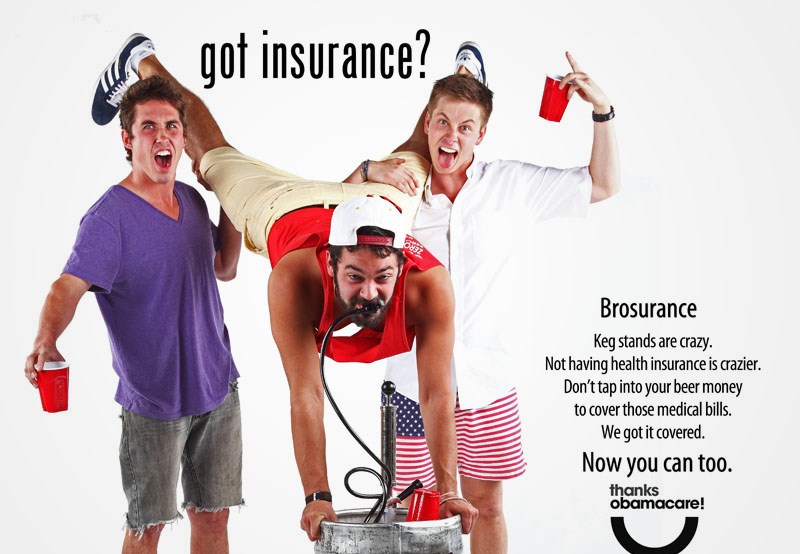Even the healthiest bros need health insurance.
That’s the message of a new social media campaign that uses keg stands and Club Med to persuade young men to sign up for the Affordable Care Act, commonly known as Obamacare.
Or, as one ad calls it: “Brosurance.”
“Keg stands are crazy. Not having health insurance is crazier,” it says next to a photo of three hard-partying guys, described as “bros for life.”
“The feedback, especially on Twitter, has been kind of off the charts, and I think we are surprised to see the Brosurance ad take off quite as much as it did,” said Adam Fox, director of strategic engagement at the Colorado Consumer Health Initiative (CCHI), which helped create the ads.
The “got insurance?” campaign is an irreverent spoof of the iconic “got milk?” ads. It’s a collaboration between CCHI and ProgressNow Colorado Education, two nonprofit advocacy groups involved in promoting enrollment under the Affordable Care Act.
The ads are intended to be fun, but attracting young people to buy health insurance is serious business. The so-called young invincibles, healthy people between the ages of 18 and 35, are key to making Obamacare work. That’s because the premiums that healthy people pay help cover the costs of sicker people in the system, writes, CNBC
The launch of HealthCare.gov may indirectly highlight the complicity of healthcare in general. This in turn is creating opportunity for insurers to portray their services as simple and value worthy. As Obamacare bad press gained lot of eyeballs, health insurance companies are airing TV commercials and printing ads that talk about “scary” and “confusing” changes to health insurance, underscoring the problems in online enrollment.
There are also speculations about how young men would perceive ‘Brosurance’ and whether they would buy it in large numbers. Feedback on social media has been mixed, kind of off the charts after ‘Got Insurance’ campaign was released.
The themes in television advertisements for health insurance plans have shifted over time, possibly reflecting the shrinking pool of health plans offered through the Affordable Care Act (ACA) as well as rising plan premiums, according to a study led by researchers at the Johns Hopkins Bloomberg School of Public Health.

B


